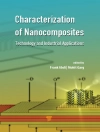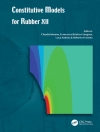Provides students and practitioners with a solid grounding in the theory of chromatography, important considerations in its application, and modern instrumentation.
* Highlights the primary variables that practitioners can manipulate, and how those variables influence chromatographic separations
* Includes multiple figures that illustrate the application of these methods to actual, complex chemical samples
* Problems are embedded throughout the chapters as well as at the end of each chapter so that students can check their understanding before continuing on to new sections
* Each section includes numerous headings and subheadings, making it easy for faculty and students to refer to and use the information within each chapter selectively
* The focused, concise nature makes it useful for a modular approach to analytical chemistry courses
Table of Content
Preface
Chapter 1: Fundamentals of Chromatography
1.1 Theory
1.2 Band Broadening
1.3 General Resolution Equation
1.4 Peak symmetry
1.5 Key Operating Variables
1.6 Instrumentation
1.7 Practice of the Technique
1.8 Emerging Trends and Applications
1.9 Summary
Problems
Bibliography
References
Chapter 2: Gas Chromatography
2.1 Theory of Gas Chromatographic Separations
2.2 Key Operating Variables that Control Retention
2.3 Gas Chromatography Instrumentation
2.4 A More Detailed Look at Stationary Phase Chemistry: Kovats Indices and Mc Reynolds Constants
2.5 Gas Chromatography in Practice
2.6 A ‘Real-World’ Application of Gas Chromatography
2.7 Summary
Problems
Bibliography
References
Chapter 3: Liquid Chromatography
3.1 Examples of Liquid Chromatography Analyses
3.2 Scope of liquid chromatography
3.3 History of LC
3.4 Modes of Chromatography
3.5 HPLC Instrumentation
3.6 Specific Uses and Advances/Trends in Chromatography
3.7 Application of LC — Analysis of Pharmaceutical Compounds in Groundwater
3.8 Summary
Problems
References
Index
About the author
Mark F. Vitha is currently a Professor at Drake University. He received his Ph.D. from the University of Minnesota. He is the series editor for The Chemical Analysis Series (Wiley) and is a co-editor of the book High Throughput Analysis for Food Safety (Wiley, 2014). He has been named as a Levitt Teacher of the Year, a Windsor Professor of Science, and a Ronald D. Troyer Research Fellow at Drake.












